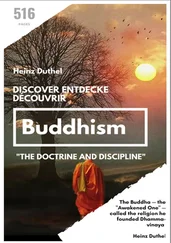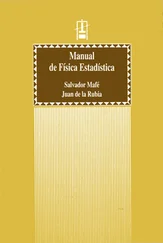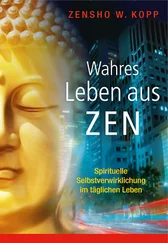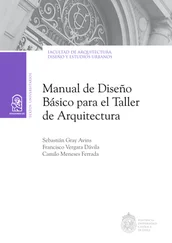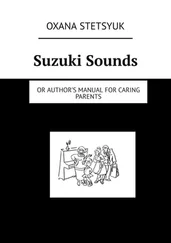Teitaro Suzuki - Manual of Zen Buddhism
Здесь есть возможность читать онлайн «Teitaro Suzuki - Manual of Zen Buddhism» весь текст электронной книги совершенно бесплатно (целиком полную версию без сокращений). В некоторых случаях можно слушать аудио, скачать через торрент в формате fb2 и присутствует краткое содержание. Жанр: Религиоведение, Религия, Руководства, на английском языке. Описание произведения, (предисловие) а так же отзывы посетителей доступны на портале библиотеки ЛибКат.
- Название:Manual of Zen Buddhism
- Автор:
- Жанр:
- Год:неизвестен
- ISBN:нет данных
- Рейтинг книги:3 / 5. Голосов: 1
-
Избранное:Добавить в избранное
- Отзывы:
-
Ваша оценка:
- 60
- 1
- 2
- 3
- 4
- 5
Manual of Zen Buddhism: краткое содержание, описание и аннотация
Предлагаем к чтению аннотацию, описание, краткое содержание или предисловие (зависит от того, что написал сам автор книги «Manual of Zen Buddhism»). Если вы не нашли необходимую информацию о книге — напишите в комментариях, мы постараемся отыскать её.
Manual of Zen Buddhism — читать онлайн бесплатно полную книгу (весь текст) целиком
Ниже представлен текст книги, разбитый по страницам. Система сохранения места последней прочитанной страницы, позволяет с удобством читать онлайн бесплатно книгу «Manual of Zen Buddhism», без необходимости каждый раз заново искать на чём Вы остановились. Поставьте закладку, и сможете в любой момент перейти на страницу, на которой закончили чтение.
Интервал:
Закладка:
For this reason, when followers of Zen fail to go beyond a world of their senses and thoughts, all their doings and movements are of no significance. But when the senses and thoughts are annihilated, all the passages to the Mind are blocked and no entrance then becomes possible. The original Mind is to be recognized along with the working of the senses and thoughts, only it does not belong to them, nor is it independent of them. Do not build up your views on your senses and thoughts, do not carry on your understanding based on the senses and thoughts; but at the same time do not seek the Mind away from your senses and thoughts, do not grasp the Dharma by rejecting your senses and thoughts. When you are neither attached to nor detached from them, when you are neither abiding with nor clinging to them, then you enjoy your perfect unobstructed freedom, then you have your seat of enlightenment.
When people learn that what is transmitted from one Buddha to another is Mind itself, they imagine that there is a particular object known as a mind which they attempt to grasp or to realize; but this is seeking something outside Mind itself, or creating something which does not exist. In reality, Mind alone is. You cannot pursue it by setting up another mind; however long, through hundreds of thousands of kalpas, you are after it, no time will ever come to you when you can say that you have it. Only when you have an immediate awakening to the state of mushin you have your own Mind. It is like the strong man's seeking for his own gem hidden within his forehead: as long as he seeks it outside himself in the ten quarters, he will not come across it; but let the wise once point at it where it lies hidden, and the man instantly perceives his own gem as having been there from the very first.
That followers of Zen fail to recognize the Buddha is due to their not rightly recognizing Where their own Mind is. They seek it outwardly, set up all kinds of exercises which they hope to master by degrees, and themselves work out diligently throughout ages. Yet they fail to reach enlightenment. No works compare with an immediate awakening to a state of mushin itself.
When you come to a most decided understanding to the effect that all things in their nature are without possessions, without attainments, without dependence, without an abiding place, without mutual conditioning, you will become free from cherishing imagination, which is to realize Bodhi. When Bodhi is realized, your own Mind which is Buddha is realized. All the doings of long ages are then found to have been anything but real disciplining. When the strong man recovered his own gem in his own forehead the recovery had nothing to do with all his efforts wasted in his outside research. So says the Buddha, “I have not had anything attained in my attainment of Enlightenment.” Being anxious about our not believing this, he refers to the five eyes [4]and the five statements [6]. But it is truth, not falsehood, for it is the first true statement.
VII. GENSHA ON THE: THREE INVALIDS [1].
Preliminary Remark
When gates and courts are established, then there are twos, there are threes, there is a realm of multiplicities; when a deep discourse is carried on on the highest subjects of intuition a world of sevens and eights is thoroughly broken through. In whatever ways views and opinions may be presented, they are crushed to pieces so that the barricades even when they are of golden chains are successfully brushed aside. When orders are given from the highest quarters, all traces are wiped off, leaving nothing whereby trailing is made possible. When do we come across such a koan ? Let one who has an eye on the forehead see to it. [2]
Illustrative Case
Gensha gave the following sermon:
“It is asserted by all the worthy masters of the present time that they are working for the benefit of all beings. [—Each keeps a shop according to his means.—Some are rich and others are poor.]
“This being the case, what will you do if there suddenly appear before you three kinds of invalids? [—By beating up the weeds, we mean to frighten snakes out.—As for me, it makes my eyes open wide and my mouth close.-We all have to beat a retreat even for three thousand li .]
“Those who are blind fail to see you even when you hold up a mallet or a hossu . [—Blind to the very core.—This is no other than ‘benefiting all beings’.—Not necessarily failing to see.]
“Those who are deaf fail to hear you even when you talk volubly enough. [—Deaf to the very core!—This is no other than ‘benefiting all beings’.—Not necessarily altogether deaf.—That something is still unheard.]
“Those who are dumb fail to speak out, whatever understanding they may have inwardly. [—Dumb to the very core!—This is no other than ‘benefiting all beings’.—Not necessarily altogether dumb.—That something is still left untold of.]
“What treatment are you going to accord to such people? If you do not know how to go on with them, Buddhism must be said to be lacking in miraculous works.” [—Quite true, this world-I am ready to give myself up with my hands folded.—“Benefiting” already accomplished!—“He then struck.”]
A monk asked Ummon (Yun-men) to be enlightened. [—It is also important to go about and inquire.—Hit!]
Said Ummon, “You make bows.” [—As the wind blows, the grass bends.—Ch'ua!]
When the monk rose from making bows, [—This monk's staff is broken!]
Ummon poked him with a staff, and the monk drew back. Said Ummon, “You are not blind then?” [—Blind to the very core!—Do not say that this monk has a failing eye-sight.]
Ummon now told him to approach, and the monk approached. [—Washed with a second dipperful of dirty water.—Kwan-non is come! To give a “ Kwatz! ” was better.] Said Ummon, “You are not deaf then?” [—Deaf to the very core!—Do not say that this monk is deaf in his ears.]
Ummon further continued, “Do you understand?” [—Why does he not feed him with the right forage?—Pity that he then uttered a word at all.]
“No, master, I do not,” was the reply. [—A double koan!—What a pity!]
Ummon said, “You are not dumb then?” [—Dumb is to the very core!—What eloquence!—Do not say that this monk is dumb.]
The monk now grasped the point. [—Stretching the bow when the burglar is off.—What old bowl is he after?]
Commentary Notes
Gensha gives this sermon from his standpoint where he is now able to sit, after years of his study of Zen, in absolute nakedness with no trumpery trimmings about him, altogether shorn of imaginations and free from conceptualism. In those days there were many Zen monasteries each of which rivalled the others. Gensha used to give this sermon to his monks:
“It is asserted by all the worthy masters of the present time that they are working for the benefit of all beings. This being the case, what will you do if three kinds of invalids suddenly appear before you here? Those who are blind fail to see you even when you hold up a mallet or a hossu. Those who are deaf fail to hear you even when you may talk volubly enough. Those who are dumb fail to speak out whatever understanding they may have inwardly. What treatment are you going to accord to such people? If you do not know how to go on with them, Buddhism must be said to be lacking in miraculous works.”
If people understand him here as merely making reference to the blind, to the deaf, to the dumb, they are vainly groping in the dark. Therefore, it is said that you are not to search for the meaning in the words which kill; you are requested to enter directly into the spirit itself of Gensha, when you will grasp the meaning.
Читать дальшеИнтервал:
Закладка:
Похожие книги на «Manual of Zen Buddhism»
Представляем Вашему вниманию похожие книги на «Manual of Zen Buddhism» списком для выбора. Мы отобрали схожую по названию и смыслу литературу в надежде предоставить читателям больше вариантов отыскать новые, интересные, ещё непрочитанные произведения.
Обсуждение, отзывы о книге «Manual of Zen Buddhism» и просто собственные мнения читателей. Оставьте ваши комментарии, напишите, что Вы думаете о произведении, его смысле или главных героях. Укажите что конкретно понравилось, а что нет, и почему Вы так считаете.



